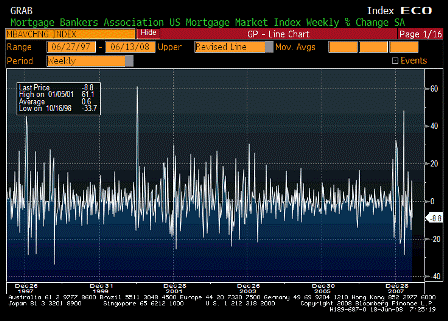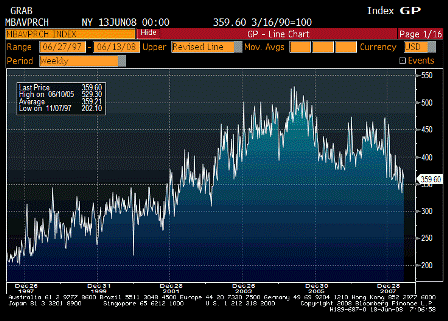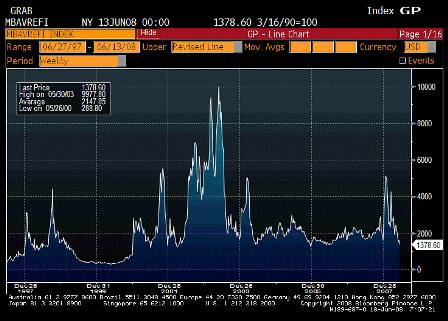Here’s how relative value stories ultimately change to inflation stories:
U.K. Government Worker Union ‘Prepares for Battle’ on Wages
By Mark Deen
(Bloomberg) Britain’s largest union for government employees urged members to “prepare for battle” and be ready to strike, stepping up pressure on Prime Minister Gordon Brown to hand out pay awards that meet the rising cost of living.
“Working people, our people, are taking a hit,” said David Prentis, general secretary of Unison, which represents 1.3 million public sector workers. “Our union will organize the most powerful campaign ever seen in support of public services.”
The comments, made in a speech and accompanied by advertisements in U.K. newspapers today, rebuff Chancellor of the Exchequer Alistair Darling’s call for wage restraint as he seeks to combat rising food and energy prices and a slowing economy.
[top]





